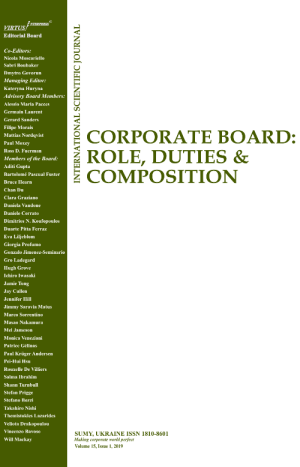
LAGGED IMPACTS OF REFORMS OF GOVERNMENT REGULATIONS OF BUSINESS ON NATIONS’ GROSS DOMESTIC PRODUCT
Download This ArticleAbstract
This article develops theory and examines relationships among reforms in government regulation of business, competitiveness, and national economic development in term of GDP per capita. The findings shed light on the ongoing debate of supporting versus refuting reducing/eliminating government regulations of business. Applying Campbell’s (1968, 1969) seminal contributions in examining the impact of reforms as quasi-experiments and Mill’s (1872/1973) method of differences, the study shows that the reforms in reductions and eliminations of government regulations of business help to increase national economic growth the lagged impact (e.g., 2, 3 years after introduction of reforms) should be expected. Also, medium-to-large reductions in the ranking of government regulations of business (increase in competitiveness) associate with increases in GDP per capita in comparison to a large increase in the ranking (decrease in competitiveness). The results also provide insights into the different regulatory environments (i.e., high vs. low government corruption and media-freedom vs. highly ethical behavior and lack of media-freedom) may condition the impact of the reforms.
Keywords: Competitiveness; Doing Business; GDP; Quasi-Experiment; Lag; Reform; Regulation; World Bank
How to cite this paper: Woodside, A. G., & Zhang, M. (2013). Lagged impacts of reforms of government regulations of business on nations’ gross domestic product. Corporate Board: role, duties and composition, 9(2), 40-53. https://doi.org/10.22495/cbv9i2art4



















